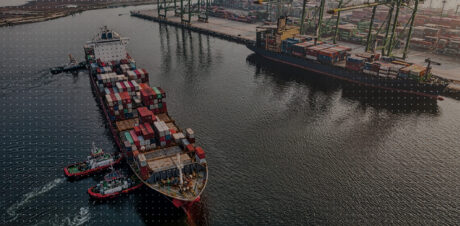A report published earlier this year uncovered that various government agencies, public educational institutions, and autonomous organizations from the central Mexican state of Guanajuato awarded over $8 million in contracts in the last five years to shell companies (known locally as “ghost companies”). The findings raise serious questions as to the true motives behind these contracts, and further demonstrate Mexico’s ongoing struggle to prevent contracts from being awarded to ghost companies.
We conducted a public records investigation into one of the shell companies that received hundreds of thousands of dollars in contracts, and identified that the majority shareholder maintains a vast network of corporate entities in Mexico, over half of which appear on Mexico’s shell company blacklist. This investigation thus provides an example workflow for Mexican government agencies along with financial institutions and multinational corporations doing business in Mexico to mitigate the risk of doing business with shell companies.
Shell companies awarded millions in contracts in the state of Guanajuato
The February report, compiled by citizens and members of Guanajuato’s Citizen Participation Committee of the State Anticorruption System, and delivered to the state’s Anticorruption System, found that between 2014 and 2019, 171 known shell companies received over $8 million (192 million pesos) in contracts from public entities. Of the 171 companies, the investigation found that 90 percent of the contracts were awarded to only nine of them.
The 171 companies appear on Mexico’s SAT Article 69-B blacklist. The blacklist includes taxpayers who have issued receipts without the infrastructure, personnel, capital, or general capacity to carry out goods or services, pursuant to Mexico’s Fiscal Code (Código Fiscal de la Federación). The list also includes taxpayers that Mexico’s Tax Administration Service (Servicio de Administración Tributaria, SAT) is unable to locate.
Additionally, local researchers found a significant increase in contracts awarded to shell companies in 2018, which also coincided with key municipal, state, and federal elections. Between 2017 and 2018, the amount awarded to known shell companies increased from about $630 thousand to over $5.2 million.
Ghost companies used to “disappear” funds from public coffers
The findings in Guanajuato represent one of several similar cases that have surfaced in recent years, highlighting Mexico’s ongoing struggle to prevent ghost companies from being awarded government contracts.
Public funds diverted via ghost companies in Veracruz
In 2016, the online news site Animal Politico published a report unveiling a complex embezzlement, fraud, and money laundering scheme emanating from the Veracruz state government during the tenure of former Governor Javier Duarte.
The investigation found that between 2012 and 2013, various state government agencies awarded 73 contracts totaling an estimated $35 million (645 million pesos) to 21 shell companies. Researchers found no evidence to suggest that the contracts, which included the purchase and distribution of various types of goods to low-income families, were ever delivered.
Duarte was arrested in April 2017 in Guatemala and extradited to Mexico in July of the same year. He was sentenced to nine years in prison in September 2018 after being found guilty of illicit association and money laundering in Mexican federal court.
The Master Fraud
Investigative journalists uncovered a similar scheme at the federal level. Known as The Master Fraud investigation (La Estafa Maestra) and published in 2017 by Animal Político and Mexicans Against Corruption and Impunity (Mexicanos Contra la Corrupción y la Impunidad), the investigation uncovered the diversion of close to $200 million to various Mexico-based shell companies.
After reviewing federal government accounting reports for 2013 and 2014, investigators found that $192 million in federal government contracts from various dependencies were diverted to 128 ghost companies. Unlike in the case of Veracruz where government agencies awarded contracts directly to the shell companies, in The Master Fraud scheme, federal contracts — which dealt with various types of services — were first awarded to eight public universities. These universities, after taking a commission, then subcontracted the work out to private companies, many of which are listed on the SAT Article 69-B blacklist.
As with the investigation in Veracruz, there is no evidence to suggest that many of these contracts were ever fulfilled.
In January, Mexico’s Financial Intelligence Unit (Unidad de Inteligencia Financiera) announced that it was investigating whether funds diverted to shell companies in The Master Fraud scheme had been used to finance political campaigns.
Finally, local researchers uncovered that two companies associated with The Master Fraud scheme, Tecmasat S.A. de C.V. and Grupo Industrial Maya, S.A. de C.V., were among the shell companies that received contracts from public entities in Guanajuato.
Identifying potential ghost companies using corporate records
To identify other entities at risk of being potential ghost companies, we conducted a public records investigation into one shell company that was awarded hundreds of thousands of dollars in contracts in the state of Guanajuato. The workflow serves as an example of how public entities as well as private financial institutions or multinational corporations can use public records to better assess the legitimacy of a client or contractor.
From 2014 to 2019, researchers in Guanajuato found that a company called Anmival, S.A. de C.V. had been awarded more than $300,000 in various contracts. The company was among the top 15 shell companies that received contracts from public entities in Guanajuato in the last five years.
Anmival was incorporated in February 2013 in Guadalajara, the capital of the western state of Jalisco. The majority shareholder at the time of incorporation was a Mexican national by the name of Ricardo Vázquez Pérez. Vázquez owned 98 percent of the shares along with a co-shareholder named Sara Norma Cordero Camacho, who owned the remaining 2 percent, according to corporate records from the Jalisco State Corporate Registry.
The business purpose of the company was buying, selling, importing, exporting, commercialization, distribution, and all business acts permitted by law, regarding all classes of articles in general. This type of broad economic activity is common for Mexican shell companies, and essentially allows them to be awarded contracts for a wide variety of goods and services.
Interestingly, the company was not added to the SAT Article 69-B blacklist until August 2018, three years after the company had officially closed, according to corporate documents from the Jalisco State Corporate Registry. It’s not immediately clear from the report when exactly Anmival was awarded the contracts.
Ricardo Vázquez maintains network of additional ghost companies
Ricardo Vázquez, the former majority shareholder of Anmival, is currently associated — either as a shareholder, administrator, manager, or legal representative — with at least 41 active companies, almost all of which are based in Guadalajara. Twenty of the 41 companies appear on the SAT Article 69-B blacklist, while an additional four companies, along with Vázquez himself, appear on various SAT Article 69 tax non-compliance lists.
Seventeen of the 41 active companies do not appear on any blacklists; however, given their connection to an individual that appears to hold a vast network of shell companies, these corporate entities are also at high risk of being ghost companies. Several entities that do not appear on any blacklists list the same broad business purpose that is included in the articles of incorporation of Anmival.
Some of the companies that do not appear on blacklists also have a history of being awarded government contracts. For example, in 2012, the Institute of Physical Educational Infrastructure of the State of Jalisco (INFEJAL) awarded a contract valued at over $15,000 to a Guadalajara-based company called Comercializadora 5000, S.A. de C.V. The purpose of the contract was to procure furniture for primary and secondary schools.
Comercializadora 5000 lists Ricardo Vázquez as its majority shareholder along with a broad corporate mandate similar to that of Anmival.
Other companies connected to Vázquez have also appeared as “providers” for municipal governments, including VV Especializados en Construccion, S.A. de C.V. and Corporativo Yopal, S.A. de C.V., among others
Shell companies pose ongoing risk to corporations and financial institutions
As documented by various journalistic and criminal investigations, the disappearance of public funds via ghost companies is an ongoing issue in Mexico. However, these companies not only pose a risk to public entities at the municipal, state, and federal levels, but also to financial institutions and multinational corporations doing business in the country.
While the Mexcan government has taken steps in recent years to curb the influence of shell companies — such as the creation of a national shell company database — financial institutions and multinational corporations must conduct enhanced due diligence to ensure that their client or vendor is legitimate. These checks should include more than simply verifying that a potential vendor or client is not on a blacklist; they should also include scrutinizing the associations of owners, control parties, or legal representatives for their ties to other entities that are known shell companies. Entities subcontracted by a corporation’s vendors must also be examined to ensure legitimacy.



